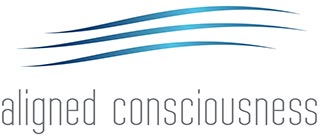
Do you feel like you’re showing off if you raise your hand frequently in a group? Is it easy for you to say “I’m good at that”? When I give presentations, one of my topics is related to self-worth. There are lots of clues I give people so that they can see if they have limiting beliefs holding them back. I give examples about being able to describe your strengths, accept congratulations and compliments, and acknowledge what you’ve done well. But many people feel like they are showing off if they do this. I’d like to reframe these behaviors from showing off to showing up – as yourself.
No boasting allowed!
Many of us are taught it’s not okay to brag when we are little. And it does get old when someone goes on and on about how great they are – no doubt about it. But there’s a difference between that behavior and having assurance and confidence in your ability to accomplish certain things.
What are your strengths?
We all have strengths and areas of genius. Some people don’t think they do, but I’ve never met anyone who hadn’t developed a set of special skills and/or wisdom around certain topics. That’s even been true of pets I’ve owned! I’ve had dogs that had huge vocabularies (but lacked basic common sense) and ones that were hard to train but were very attuned to what people needed emotionally. The same goes for people. Some may be highly educated, some may have great people skills, and some may be a genius at some practical aspects in life. We can have skills or gifts that are physical, emotional, intellectual, creative – all sorts of types. Often we have varying mixes of these.
When do you state them?
Why does it sometimes feel wrong to claim these as our own? Because it’s become part of our default belief system that it’s not okay to show off or talk about what we are good at. We might be able to list our strengths on a resume or discuss them in a job interview, but how many of us are comfortable claiming them in real-time?
Imagine doing this.
What would be so awful about saying something you did was a challenge and you feel proud of yourself for achieving the results you did? And yet, when complimented we often respond with “I was lucky” or “All the credit goes to the team” or some other deflection.
I can remember times back in my corporate life when I would tell planners to give me assignments wherever they needed me the most. Boy – that turned out to be a terrible mistake sometimes! I’d end up doing work I had no interest in. What would happen if you were in a group trying to accomplish some goal and spoke up and said what role you thought would suit your strengths? What if everyone did that? Wow – things might get done better or quicker or with more enjoyment if everyone got to do what they were best at and enjoyed, or requested a role that they really wanted to learn more about.
It’s those limiting beliefs that we aren’t really that good, that we shouldn’t be proud of who we are, that our interests aren’t important, or that people won’t like us if we speak up – those are what prevent us from being our authentic selves, from showing up as exactly who we are and feeling good about it.
Do try this at home.
Louise Hay (and certainly many others) has an exercise where you look in a mirror and say “I love you” to yourself – looking straight into your own eyes. Many people have difficulty doing this. It’s those subconscious beliefs that make it so hard – somewhere along the line we learned that we weren’t really lovable. I suggest an additional experiment – look in the mirror and tell yourself something you are proud of about yourself. See how that feels. If it’s a challenge, I’m guessing there are some limiting beliefs that are holding you back.
Do you want to show up?
If you want to change some beliefs so that you can start showing up as yourself, I’m here to help. Book a free call here and we can talk about it.


Leave a Reply